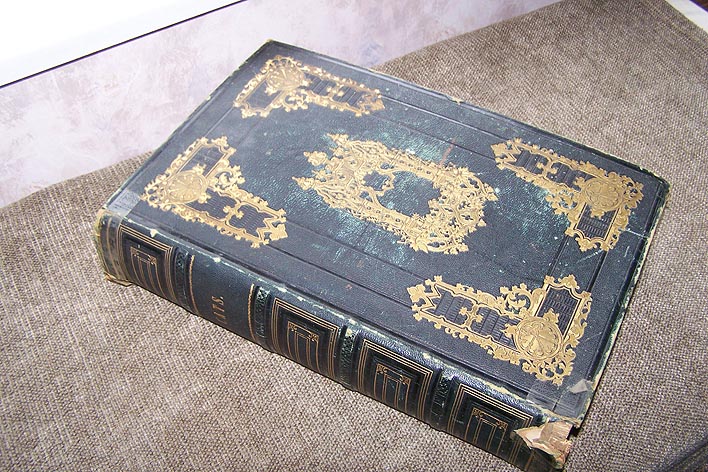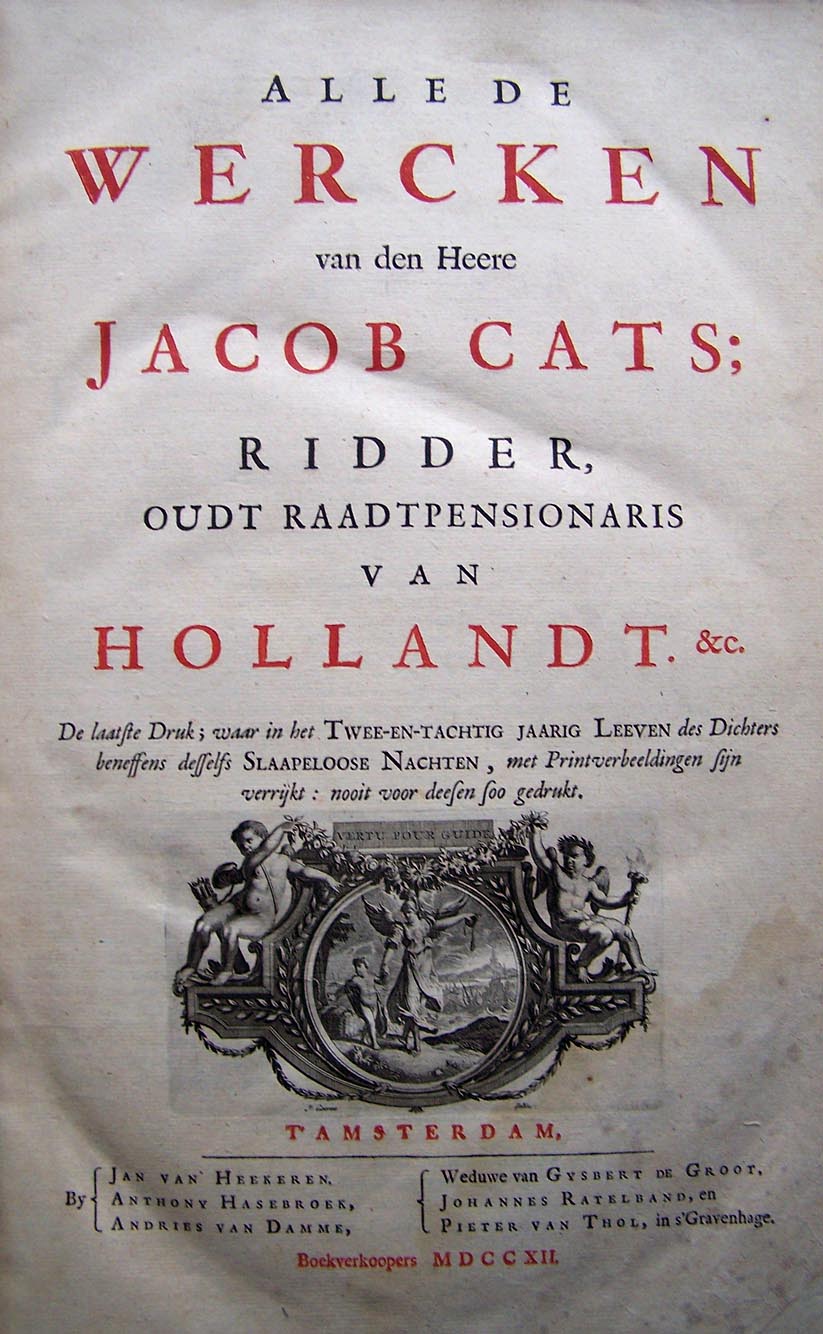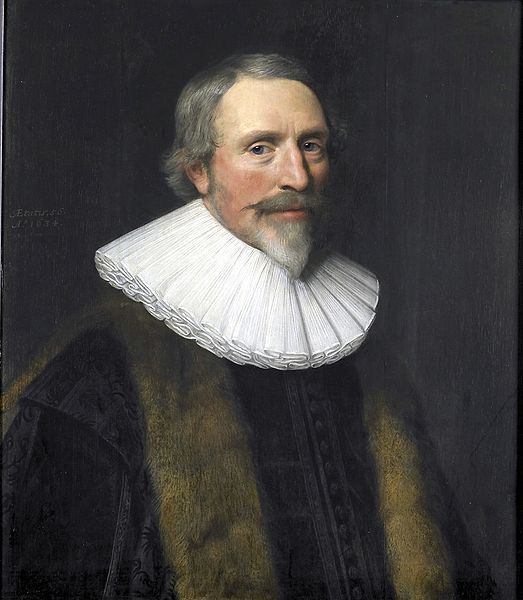This book was published in Holland in 1712, the same year that Jacob Crommelin completed his history of the Crommelin family that was later published by J.H. Scheffer. The Jacob Cats book is still in fine condition.

According to Wikipedia, Jacob Cats (10 November 1577 – 12 September 1660) was a Dutch poet, humorist, jurist and politician. After retiring from officialdom around 1657 he lived in seclusion near the Hague where he wrote his autobiography Eighty-two Years of My Life, first printed at Leiden in 1734. He became famous in his own lifetime from his moralistic Emblem books, most notably Sinne en Minnebeelden, for which Adrian van der Venne cut the plates. He died on 12 September 1660, and was buried by torchlight, and with great ceremony, in the Klooster-Kerk at the Hague. He is still affectionately referred to as 'Father Cats' by his countrymen today.
Cats was contemporary with Hooft and Vondel and other distinguished Dutch writers in the golden age of Dutch literature, but his Orangist and Calvinistic opinions separated him from the liberal school of Amsterdam poets. He was, however, intimate with Constantijn Huygens, whose political opinions were more nearly in agreement with his own. Hardly known outside of Holland, among his own people for nearly two centuries he enjoyed an enormous popularity. His diffuseness and the antiquated character of his matter and diction, have, however, come to be regarded as difficulties in the way of study, and he is more renowned than read. A statue to him was erected at Brouwershaven in 1829.
Cats' moralistic poems were told and retold like nursery rhymes over several generations. Even today many of his coined phrases are still colloquialisms in the daily language.
Select Epigrams




